The 2021 SAFE International Conference will open for registration shortly.
The Scientific Association of Forensic Examiners presents it speaker list for the 2021 conference. Since 2015 SAFE has delivered its international conference online via Zoom. Our members are located across the world in Africa, Asia, Europe, New Zealand, North America, and South America.
The 2021 SAFE International Conference is held this year on August 27 and October 1. The list of speakers is being finalized.
This is a list of speakers for the August 27 SAFE conference (August 28 Asia and New Zealand)
Click here to register
9:00 Pacific Time, 12:00 Eastern time
Dr. Dana Chidekel, PhD, ABN, ABPdN
Title: Does a Fish Know It’s in Water? How Our Invisible Assumptions Determine What We See
Abstract:
Our brains are continually engaged in solving a selection problem. We can’t take in everything around us. To what do we attend? What do we screen out? These “decisions” are invisible. They’re the products of our particular neurologies and of the habits of thinking that each of us began to develop in infancy, before we were even aware of thinking. Habits of thinking are adaptive for survival because they make the world knowable and predictable. But they limit us. In this presentation we talk about how we develop in the ways we do, and how we can expand our range of thinking and perceiving beyond limitations of which we’re not aware.
Bio:
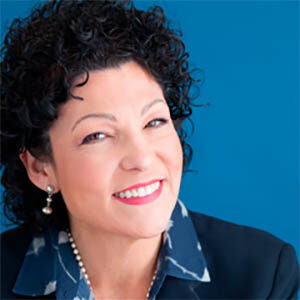 Dr. Dana Chidekel, a clinical neuropsychologist, is certified by both the American Board of Pediatric Neuropsychology and the American Board of Professional Neuropsychology. She maintains a private practice in Tarzana, CA in which she provides comprehensive assessments to children and adults referred for cognitive, developmental, academic, psychiatric, and behavioral problems. Licensed to practice in California, Oklahoma and Connecticut and license-pending in Nevada, Dr. Chidekel dedicates a portion of her practice to forensic work. She is retained as a consultant and expert by plaintiff and defense in approximate equal proportions, in state and federal matters associated with personal injury, elder law, probate, employment law, educational law, business law, and (limited) family and criminal law. Cases involve testamentary and contractual capacity, traumatic brain injury, medical malpractice, psychological trauma, harassment, discrimination, developmental disability, and special education. She loves the good fight, which any fight on behalf of the truth. Dr. Chidekel has authored and coauthored professional articles about developmental neuropsychology and parameters of professional practice, that appear in journals such as Cerebellum, Pediatric Neurology, and Applied Neuropsychology: Child. She is co-author of ADHD as a Model of Brain-Behavior Relationships (Springer 2013) and author of Parents in Charge: Setting Healthy, Loving Boundaries for You and Your Child (Simon and Schuster, 2001). She is a frequent presenter to lay and professional audiences as a speaker, panelist, and keynote. Dr. Chidekel has appeared on local and national radio and TV programs, including multiple appearances on The Today Show.
Dr. Dana Chidekel, a clinical neuropsychologist, is certified by both the American Board of Pediatric Neuropsychology and the American Board of Professional Neuropsychology. She maintains a private practice in Tarzana, CA in which she provides comprehensive assessments to children and adults referred for cognitive, developmental, academic, psychiatric, and behavioral problems. Licensed to practice in California, Oklahoma and Connecticut and license-pending in Nevada, Dr. Chidekel dedicates a portion of her practice to forensic work. She is retained as a consultant and expert by plaintiff and defense in approximate equal proportions, in state and federal matters associated with personal injury, elder law, probate, employment law, educational law, business law, and (limited) family and criminal law. Cases involve testamentary and contractual capacity, traumatic brain injury, medical malpractice, psychological trauma, harassment, discrimination, developmental disability, and special education. She loves the good fight, which any fight on behalf of the truth. Dr. Chidekel has authored and coauthored professional articles about developmental neuropsychology and parameters of professional practice, that appear in journals such as Cerebellum, Pediatric Neurology, and Applied Neuropsychology: Child. She is co-author of ADHD as a Model of Brain-Behavior Relationships (Springer 2013) and author of Parents in Charge: Setting Healthy, Loving Boundaries for You and Your Child (Simon and Schuster, 2001). She is a frequent presenter to lay and professional audiences as a speaker, panelist, and keynote. Dr. Chidekel has appeared on local and national radio and TV programs, including multiple appearances on The Today Show.
10:10 Pacific Time, 1:10 Eastern time
Sarah Chu
Title: Considering Ethical Implications of Algorithms Require Critical Evaluations
Abstract
Many emerging algorithmic technologies have been criticized for their lack of evidence base or lack of accuracy. However, even if scientific advancements fine-tune the accuracy of these tools, their implementation may need to be halted or limited based on their potential harm to society. Since the 2009 National Academy of Sciences report, the forensic science community has prioritized research focused on the validity and reliability of forensic science disciplines. However, even accurate technologies can be harmful. To measure the scientific rigor of a method and its impact on society, this presentation calls for implementing a dual-track evaluation of both (1) validity and reliability and (2) justice and equity measures. It is only through assuring a method or technology meets scientific metrics and does not contribute to or exacerbate existing societal disparities we can assure that forensic science and investigative technologies deliver justice for all.
Bio
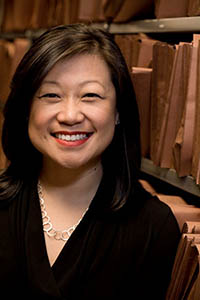 Sarah Chu joined the Innocence Project in September 2008. As the Senior Advisor on Forensic Science Policy, she leads policy work that focuses on improving the valid, reliable, and just applications of forensic science and police investigative technologies. Before joining the Innocence Project, Sarah worked in executive search and as a middle school science teacher in the NYC public schools. She also represents her community on her local community board. Sarah graduated from the University of California, San Diego with bachelor degrees in Biochemistry/Cell Biology, Communication, and a Masters in Biology, and holds a Masters in Epidemiology from Stanford University. She is a doctoral student in the Criminal Justice program at John Jay College of Criminal Justice/CUNY Graduate Center where her research interests include the oversight and critical examinations of forensic science and police surveillance technology.
Sarah Chu joined the Innocence Project in September 2008. As the Senior Advisor on Forensic Science Policy, she leads policy work that focuses on improving the valid, reliable, and just applications of forensic science and police investigative technologies. Before joining the Innocence Project, Sarah worked in executive search and as a middle school science teacher in the NYC public schools. She also represents her community on her local community board. Sarah graduated from the University of California, San Diego with bachelor degrees in Biochemistry/Cell Biology, Communication, and a Masters in Biology, and holds a Masters in Epidemiology from Stanford University. She is a doctoral student in the Criminal Justice program at John Jay College of Criminal Justice/CUNY Graduate Center where her research interests include the oversight and critical examinations of forensic science and police surveillance technology.
11:20 Pacific Time, 2:20 Eastern time
Dr. Jeff Salyards
Topic: Getting It Right – The Language of Measurement & Diagnostic Accuracy
Abstract
Epistemology is the investigation of what distinguishes justified belief from opinion, or more plainly, it’s knowing how well we know something. Over last the century, a lexicon has developed to describe precision, accuracy, and the quality of scientific work. These terms include uncertainty, sensitivity, specificity, error, and mistake. Unfortunately these terms are used in ambiguous ways and even conflated with each other. And their byproducts like Type I and II Errors, positive predictive value, and Youden’s J statistic, etc, are sometimes miscalculated. However, each term describes different parts of the measurement and diagnostic processes. As forensic science matures and becomes more rigorous, a common understanding of these terms will serve us well.
Bio
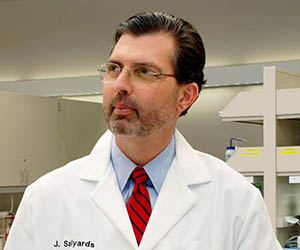 Dr Salyards is a Principal Analyst with Compass Scientific Consulting LLC specializing in continuing education for legal, medical, law enforcement, & educational professionals, forensic science case review and expert testimony. He is a Forensic Research Scientist IV with the Center for Statistics and Applications in Forensic Evidence (CSAFE) at Iowa State University.
Dr Salyards is a Principal Analyst with Compass Scientific Consulting LLC specializing in continuing education for legal, medical, law enforcement, & educational professionals, forensic science case review and expert testimony. He is a Forensic Research Scientist IV with the Center for Statistics and Applications in Forensic Evidence (CSAFE) at Iowa State University.
He has 33 years of combined experience in scientific leadership, investigations, forensic consulting and teaching. For 5 years, Jeff was the Executive Director of the Defense Forensic Science Center (DFSC). Previously he served as the Chief Scientist for the US Army Criminal Investigation Laboratory. He was Director of the Defense Computer Forensic Laboratory and AFOSI Special Agent. As the Deputy for Operations and Assistant Professor at the Air Force Academy Chemistry Department, he was honored with the Outstanding Academy Educator Award. He holds a PhD in Chemistry from Montana State University, a Master of Forensic Sciences from The George Washington University, and has completed a Fellowship in Forensic Medicine from the Armed Forces Institute of Pathology.
Dr Salyards has served on the following national-level organizations:
- Board of Directors for the American Society of Crime Laboratory Directors/Laboratory Accreditation Board
- Department of Justice National Steering Committee for Regional Computer Forensic Laboratories
- Council of Federal Forensic Laboratory Directors
- White House Office of Science and Technology Policy Subcommittee on Forensic Science
- American Society of Crime Laboratory Directors Board of Directors
- Forensic Education Programs Accreditation Commission
- Strategic Advisory Board Member for the Center for Statistics and Applications in Forensic Evidence at Iowa State University
- National Commission on Forensic Science
Jeff is a Member of the Forensic Science Standards Board for the Office of Scientific Area Committees with NIST, and a Fellow of the American Academy of Forensic Sciences.
1:00 Pacific Time, 4:00 Eastern time
Patricia Fripp
Title: Build Your Credibility as an Expert Witness: How to Present Powerful Opinions
Abstract – Click the video. Patricia Fripp delivers an audio abstract.
Your goal as an expert witness is to convey your information in a clear, concise, and memorable way. Your challenge is to present complex concepts in an interesting, easy, digestible way for the jury. No matter what your knowledge and experience, your message needs to connect to jurors, attorneys and judges. Often the best story and the communication skills of the expert win.
Presentation skills expert Patricia Fripp will help you better understand how to:
- Connect to every audience member in the courtroom
- Simplify the complex
- Use visual words
- Make your examples memorable
- Build your credibility with specificity
Bio
 Patricia Fripp is a Hall of Fame keynote speaker, executive speech coach, sales presentation, and online learning expert. She was elected the first woman to become President of the National Speakers Association.
Patricia Fripp is a Hall of Fame keynote speaker, executive speech coach, sales presentation, and online learning expert. She was elected the first woman to become President of the National Speakers Association.
In Patricia’s career, she has delivered over 3,500 presentations as well as 100s of virtual presentations. Companies hire Patricia to help them drive more business by perfecting their sales conversations and presentations and by helping leaders inspire action and commitment through their words. Clients of her speech coaching include corporate leaders, technical and sales professionals, and seasoned professional speakers. Her online learning platform, FrippVT Powerful, Persuasive Presentations, is embraced as a “must-have” by speakers and companies worldwide.
Kiplinger’s Personal Finance wrote, “Learning presentation skills from Patricia Fripp is one of the best ways to invest in you.” She is the author of two books and co-author of another three. In 2019 she was named “One of the Top 30 Women in Sales” and “One of the Top 30 Global Gurus.” In 2021 as a speechwriter one of her speeches for a J&J executive was featured in Vital Speeches of the Day and won an Honorable Mention in the Cicero Awards.
2:10 Pacific Time, 4:10 Eastern time
Kimberly Pease and Dr. Stan Stahl
Topic: Cyber Crisis: Securing Our Economy. Protecting Our Identities. Preserving Our Freedoms.
Abstract
Through storytelling and statistics, join us as we hear from Kimberly Pease, CISSP and Stan Stahl, PhD put the cybersecurity crisis in perspective and describe the role we must play to protect our families, our organizations, and our freedoms.
- The Cybersecurity Crisis
- Protecting Your Home and Family — The Top 7
- Protecting the Organization — 7 Key Executive Strategies
- Protecting the Organization — The Key Role of the webmaster and information systems to ensure the site and organization are safe
- Cyber Citizenship
Speaker Bios:
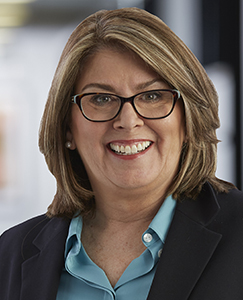 Kimberly Pease is Director of Information Security at Miller Kaplan Arase LLP. Ms. Pease was also co-founder and Vice President of Citadel Information Group, Inc., a California Information Security/Cyber Security Management firm from 2002 – 2020. Ms. Pease has been awarded Cybersecurity Professional of the Year by the Los Angeles Business Journal CTO Awards 2017. She has an extensive background in the applications of technology and security solutions. A Certified Information Systems Security Professional (CISSP), Ms. Pease has been a member of the Los Angeles Chapter of the Information Systems Security Association since 2002 and has served on the Board of Directors as Treasurer (2008 – 2011) and Education Director (2006 – 2007). She also served as Chair of the annual conference, ISSA LA Information Security Summit, for over 7 years. Ms. Pease speaks frequently on information security, has published several articles and has been interviewed numerous times on ABC News Good Morning America and NBC News.
Kimberly Pease is Director of Information Security at Miller Kaplan Arase LLP. Ms. Pease was also co-founder and Vice President of Citadel Information Group, Inc., a California Information Security/Cyber Security Management firm from 2002 – 2020. Ms. Pease has been awarded Cybersecurity Professional of the Year by the Los Angeles Business Journal CTO Awards 2017. She has an extensive background in the applications of technology and security solutions. A Certified Information Systems Security Professional (CISSP), Ms. Pease has been a member of the Los Angeles Chapter of the Information Systems Security Association since 2002 and has served on the Board of Directors as Treasurer (2008 – 2011) and Education Director (2006 – 2007). She also served as Chair of the annual conference, ISSA LA Information Security Summit, for over 7 years. Ms. Pease speaks frequently on information security, has published several articles and has been interviewed numerous times on ABC News Good Morning America and NBC News.
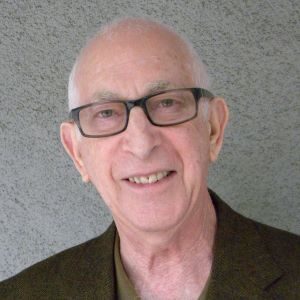 Dr. Stan Stahl founded SecureTheVillage as a nonprofit community-based response to the cybercrime and privacy crisis. SecureTheVillage’s vision is a cybersecure global village. Stan is also Director of Information Security Management Programs at Miller Kaplan where he brings his 40 years of information security management expertise to midsize and smaller businesses and nonprofits.
Dr. Stan Stahl founded SecureTheVillage as a nonprofit community-based response to the cybercrime and privacy crisis. SecureTheVillage’s vision is a cybersecure global village. Stan is also Director of Information Security Management Programs at Miller Kaplan where he brings his 40 years of information security management expertise to midsize and smaller businesses and nonprofits.
Besides community leadership through SecureTheVillage, Stan serves on the Advisory Board of LA Cyber Lab and the Small Business Advisory Council of the Cyber Readiness Institute. An information systems security pioneer, in the 1980s Stan secured teleconferencing between the White House and key Federal Agencies, databases inside Cheyenne Mountain, and the communications network controlling our nuclear weapons arsenal. A frequent speaker, Stan was an invited panelist at the WSJ Pro Cybersecurity Symposium in San Diego in January 2020 on How to Protect Your Company Without Breaking the Bank. Stan is also the author of The Agnostic Patriot: A Citizen Searches for the Soul of America. His Ph.D. in mathematics is from The University of Michigan.
Click here to register
This is a partial list of speakers for the October 01 SAFE Conference
Prof. Pàvlos Kipouràs
Topic: Evidence for a 3-stage Model for the Process of Free-hand Forgery of Signatures and/or Handwriting
Abstract:
Questioned documents, suspected of resulting from free-hand forgery, are a challenge to Forensic Document Examiners (FDEs). This article hypothesizes that there is normally a unique sequence of contracting muscles required to produce a specific signature or handwriting; the hypothesis is supported by recent EMG studies in handwriting and by kinesiology. On this basis, a 3-stage model (ElAdApp) is outlined for analyzing the process of free-hand forgery of signatures or handwriting. Using this model to examine 35 cases of forgery, quasi-randomly selected out of 700 cases, evidence of its utility is presented with case studies and statistical data. The model is advocated as a useful tool for FDEs, and a contribution towards bolstering the scientific basis of forensic document examination.
Bio:
Pàvlos 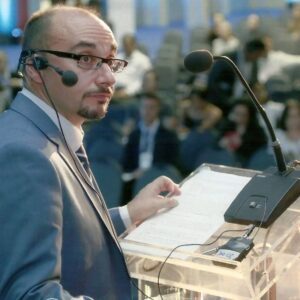 Kipouràs was born in Athens, Greece in 1973. Graduate of Law School in ‘Dimokriteion University of Thrace” in Greece in 1996. Graduate of Judicial Graphology in “Università degli Studi di Urbino ‘Carlo Bo’” of Italy in 2000. MSc of Graphological Expertise & Professional Consultancy in “Università degli studi di Urbino ‘Carlo Bo’” in 2006, Graduate in Graphological Techniques Università degli studi di Urbino ‘Carlo Bo’ of Italy in 2008. PhD “Judicial Graphology as an Expertise” Dimokriteion University of Thrace, Greece 2009. Diploma of Specialization in Criminalistic Graphology “Università Pegaso” of Italy in 2013. Grad. in Graphometric signatures Centro Studi Grafologici (CeSGraf), Italy, 2020.
Kipouràs was born in Athens, Greece in 1973. Graduate of Law School in ‘Dimokriteion University of Thrace” in Greece in 1996. Graduate of Judicial Graphology in “Università degli Studi di Urbino ‘Carlo Bo’” of Italy in 2000. MSc of Graphological Expertise & Professional Consultancy in “Università degli studi di Urbino ‘Carlo Bo’” in 2006, Graduate in Graphological Techniques Università degli studi di Urbino ‘Carlo Bo’ of Italy in 2008. PhD “Judicial Graphology as an Expertise” Dimokriteion University of Thrace, Greece 2009. Diploma of Specialization in Criminalistic Graphology “Università Pegaso” of Italy in 2013. Grad. in Graphometric signatures Centro Studi Grafologici (CeSGraf), Italy, 2020.
He is an Attorney at Law since 1998, Document Examiner/Judicial Graphologist since 2001 and Professional Graphologist since 2006. Advisor of the «State Commitee of Cinematography» of the Greek Ministry of Civilization since 2012. Prof of “History of the Greek Writing” of “Pegaso University” of Italy (2015-2016), Prof of “History of the Greek Writing” and “Elements of Greek Writing” of the “Scuola Forense di Grafologia” (SFG) of Naples, Italy (2016-2021) and Prof of “Graphopathology in Greek Writing” of “Scuola di Grafopatologia Forense” (SGF) (2018-2021) of Naples, Italy.
Specialist in Graphometric signatures (2020) and Senior Researcher of South Ural State University of Russia since 09/2020. Member of the Athens Bar Association of Lawyers, ΠΕΔΙΚΓΡΑΦ (Greek Association of Document Examiners), Associazione Grafologica Italiana (AGI), CIGMe (Centro Internazionale di Grafologia Medica), Slovak Graphological Society, CeSGraf (Centro Studi Grafologici), AGRAGI (Associazione Grafologica Giudiziaria), Associazione Nazionale Grafologi Forensi ed Esperti Documentali (Anigrafed) and Scientific Association of Forensic Examiners (SAFE). Interested in research in graphometric signatures, speaker in 40 international conferences and seminars throughout world (from Brazil to China), author of articles and author of the book “Judicial Graphology as an Expertise” published in 2009 in Greece (Ed. Ant.N.Sakkoulas).
Dr. Alicia Carriquiry
Center for Statistics and Applications in Forensic Evidence (CSAFE)
Topic: Quantitative methods for forensic handwriting analysis
Abstract:
Document examiners are often asked to determine whether two handwritten samples are similar enough to suggest a common author. Today, most examiners rely on a subjective assessment of the similarities and differences in the shape of the writing. While a recent study indicates that the error rates of trained examiners is moderately low, visual comparison does not lend itself to probabilistic conclusions as might be represented by a likelihood ratio.
In this presentation, I will introduce the likelihood ratio framework in the context of handwriting analysis and discuss its implementation. Research ongoing at CSAFE addresses a variety of scenarios where it may be possible to make probabilistic assessments of authorship or to quantify the similarity between two handwritten documents. We consider the case where the author is in a closed set but also present some initial results for the case where the author can be anyone in a “relevant” population. The amount of questioned writing requires different statistical approaches, and we will also touch upon these issues.
A free software package called handwriter is in the process of beta testing but is already available in a public github repository at https://github.com/CSAFE-ISU/handwriter.
Bio:
 Alicia Carriquiry was born in Montevideo, Uruguay. There, she graduated with a degree in Agricultural Engineering in 1982. She enrolled in a MSc degree in animal genetics at the University of Illinois in Urbana, and graduated in 1985. She then moved to Iowa State University in Ames, where she completed a joint PhD in statistics and animal genetics in 1989.
Alicia Carriquiry was born in Montevideo, Uruguay. There, she graduated with a degree in Agricultural Engineering in 1982. She enrolled in a MSc degree in animal genetics at the University of Illinois in Urbana, and graduated in 1985. She then moved to Iowa State University in Ames, where she completed a joint PhD in statistics and animal genetics in 1989.
Since 1990, Carriquiry has been on the faculty in the Department of Statistics at Iowa State University. She is currently Distinguished Professor of Liberal Arts and Sciences and President’s Chair in Statistics, and is Director of the Center for Statistics and Applications in Forensic Evidence (CSAFE), a National Institute of Standards and Technology (NIST) Center of Excellence. She is an elected member of the National Academy of Medicine, a Fellow of the American Statistical Association, the Institute of Mathematical Statistics, the International Society for Bayesian Analysis and the American Association for the Advancement of Science, and an elected member of the International Statistical Institute.
In 2021, Carriquiry was awarded the Zellner Medal (ISBA) and the F.N. David Award (Committee of Presidents of Statistical Societies). Her research interests include measurement error modeling, survey sampling and Bayesian methods. In recent years, she has become interested in machine learning algorithms and their application in various disciplines, in particular in forensic science. She has published about 150 peer-reviewed articles and has mentored the work of 20 doctoral students, five post-doctoral researchers, and several brilliant undergraduates.
Dr. Ching Yee Suen, PhD
Topic: Recognition of Handwriting and Fake Coins
Abstract
This talk will begin with a brief description of CENPARMI’s (Centre for Pattern Recognition and Machine Intelligence at Concordia University) research projects related to the recognition of handwriting and fake coins.
A summary of our decades of research on handwriting recognition will be presented, including: handwriting education, models and standards, handedness and gender effects, recognition algorithms and classifiers, machine learning and deep neural networks, human and machine recognition studies, psychological and graphological aspects, and our recent research on handwriting analysis and human personalities.
Bio
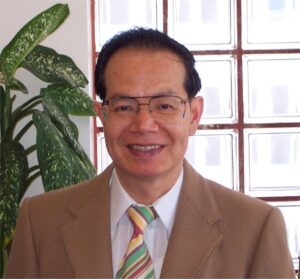 Dr. Ching Y. Suen is the Director of CENPARMI and the Concordia Honorary Chair on AI & Pattern Recognition. He received his Ph.D. degree from UBC Vancouver) and his Master’s degree from the University of Hong Kong. He has served as the Chairman of the Department of Computer Science and as the Associate Dean (Research) of the Faculty of Engineering and Computer Science of Concordia University.
Dr. Ching Y. Suen is the Director of CENPARMI and the Concordia Honorary Chair on AI & Pattern Recognition. He received his Ph.D. degree from UBC Vancouver) and his Master’s degree from the University of Hong Kong. He has served as the Chairman of the Department of Computer Science and as the Associate Dean (Research) of the Faculty of Engineering and Computer Science of Concordia University.
Prof. Suen has served at numerous national and international professional societies as President, Vice-President, Governor, and Director. He has given 45 invited/keynote and 300 regular papers at conferences and 200 invited talks at various industries and academic institutions around the world. He has been the Principal Investigator or Consultant of 30 industrial projects. His research projects have been funded by the ENCS Faculty and the Distinguished Chair Programs at Concordia University, FCAR (Quebec), NSERC (Canada), the National Networks of Centres of Excellence (Canada), the Canadian Foundation for Innovation, and the industrial sectors in various countries, including Canada, France, Japan, Italy, and the United States.
Dr. Suen has published 5 conference proceedings, 16 books and more than 550 papers, and many of them have been widely cited while the ideas in others have been applied in practical environments involving handwriting recognition, thinning methodologies, font analysis and multiple classifiers. Dr. Suen is the recipient of numerous awards, including the IAPR King-Sun Fu Prize (2020), Elsevier Pattern Recognition Journal Award of Excellence (2016), Gold Medal from the University of Bari (Italy 2012), the IAPR ICDAR Award (2005), the ITAC/NSERC national award (1993), and the “Concordia Lifetime Research Achievement” and “Concordia Fellow” awards (2008 and 1998 respectively), and the “Teaching Excellence Award” given by the Concordia Council of Student Life in 1995.
Michael Zuckerman
Topic: Best practices for writing forensic reports
Abstract
In this session, attorney Michael A. Zuckerman will discuss best practices for writing forensic reports. He will touch upon the up-tick in experts (and many others) using templates and even advanced artificial intelligence to write reports. This phenomenon is concerning. Not only does it raise ethical concerns (competence, judgment, billing, confidentiality), but it risks striking out in court. Judges may not allow templates or machine-written reports and moreover, such reports, even if they get into court, are not all that persuasive. Your credibility is on the line. We will talk through these issues, existing technology and examples, hopefully ending with a lively discussion of best practices and avoiding pitfalls.
Bio
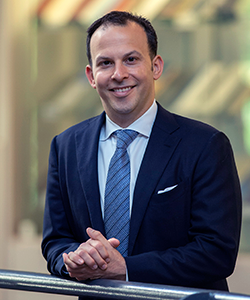 Michael A. Zuckerman, founder of Zuckerman Law Firm, LLC, is a seasoned litigator and lawyer. Mr. Zuckerman has practiced law at the global law firm Jones Day and clerked for several federal judges on the trial and appellate levels. He also served as a law professor at Northwestern Pritzker School of Law, where he taught legal writing to first year law students. He has published extensively, including a recent article on his concerns about artificial intelligence and professional writing. Mr. Zuckerman has also spoken on various legal issues ranging from ethics to legal education to the federal court system.
Michael A. Zuckerman, founder of Zuckerman Law Firm, LLC, is a seasoned litigator and lawyer. Mr. Zuckerman has practiced law at the global law firm Jones Day and clerked for several federal judges on the trial and appellate levels. He also served as a law professor at Northwestern Pritzker School of Law, where he taught legal writing to first year law students. He has published extensively, including a recent article on his concerns about artificial intelligence and professional writing. Mr. Zuckerman has also spoken on various legal issues ranging from ethics to legal education to the federal court system.
As an attorney, Mr. Zuckerman has extensive experience working with experts, and assisting judges with expert-issues as a law clerk. He has authored hundreds of appellate and trial-level motions. Drawing on his experience Mr. Zuckerman is also a certified mediator and has mediated cases in numerous Illinois courts. Mr. Zuckerman, who is licensed to practice in Illinois, is a member of many legal organizations including the American Bar Association, the Federal Bar Association and the Association of Attorney Mediators.
Mr. Zuckerman earned his J.D. cum laude from Cornell Law School where he served on the Cornell Law Review. He holds a B.S. in Industrial and Labor Relations from Cornell University.
Rhonda Sher
Topic: Create a LinkedIn profile to build your business
Abstract
The goal when having a profile on LinkedIn is to appear credible and visible. Your challenge is having a profile that answers the questions in your prospect’s mind and presents you as the only logical choice.
Whether you have been on LinkedIn for years or are new to the platform, your profile needs to be current and position you in a way that others separates you from your competitors.
LinkedIn expert, Rhonda Sher will help you better understand how to:
- Create a LinkedIn profile that separates you from your competitors
- Connect with your ideal prospects and referral partners
- Build your credibility with recommendations, testimonials, and case studies
- Position yourself as an authority on LinkedIn using the power of posting
Bio
 Rhonda L Sher is a LinkedIn consultant, executive coach, and business networking expert. Rhonda has delivered thousands of presentations as well as hundreds of trainings both live and virtual. Her expertise is helping professionals leverage LinkedIn to generate 2-10 appointments a week and position themselves as the only logical choice for the product or service they offer.
Rhonda L Sher is a LinkedIn consultant, executive coach, and business networking expert. Rhonda has delivered thousands of presentations as well as hundreds of trainings both live and virtual. Her expertise is helping professionals leverage LinkedIn to generate 2-10 appointments a week and position themselves as the only logical choice for the product or service they offer.
Rhonda is the author of five books including the international best seller, Convert Your Connections to Cash & Relationships to Revenue. She has consistently been named one of the top 50 trainers on LinkedIn. Rhonda lives in San Diego with her husband and has over 28,000 followers on LinkedIn.
